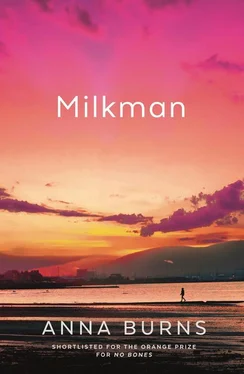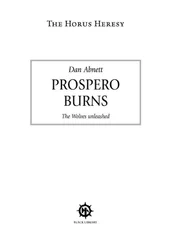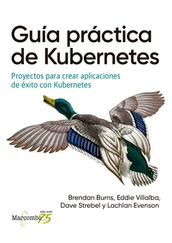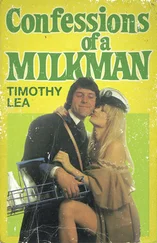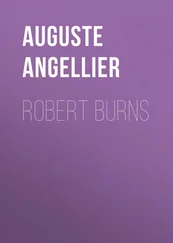I saw a programme on TV years after I had been split from maybe-boyfriend, about people who hoard things but didn’t consider they hoarded things, and although nobody was hoarding car, I couldn’t help noticing a similarity between what these individuals were doing all these years forward during what is now the era of psychological enlightenment, and what maybe-boyfriend was doing, way back when enlightenment didn’t yet exist. One couple consisted of a hoarder (him), and then there was her (not a hoarder). Everything was divided in half and his half dominated and was a mountain from carpet to ceiling, covering the mass of half the space in each room. After a while, some of his stuff began to slide down the mountain and spill over into her stuff, which was inevitable as he couldn’t stop adding to it which meant he ran out of space and inclined himself necessarily into hers. As for maybe-boyfriend’s house, the hoarding was nowhere as compressed and restricting as certainly it was on those later TV entertainment programmes. There was no doubt, however, that he was adding to it. As for my reaction, I could bear the cluttered state of ‘Come in and welcome, but you’re going to have to squeeze a little’ during times I stayed over because of the normality of the kitchen and of his bedroom and the half normality of the bathroom. Mainly though, I could bear it because of the ‘maybe’ level of our relationship, meaning I didn’t officially live with him and wasn’t officially committed to him. If we were in a proper relationship and I did live with him and was officially committed to him, first thing I would have to do would be to leave.
So this was maybe-boyfriend’s house and it was a whole house, which at that time for a twenty-year-old man or woman – and especially an unmarried man or woman – was unusual. Not just in his area. It would have been unusual in my area too. It had come about because one day when he’d been twelve and his brothers had been fifteen, seventeen and nineteen, his parents had left home to dedicate themselves fully to professional ballroom-dancing careers. At first their sons hadn’t noticed they were gone because the parents were always taking themselves off unannounced, successfully to compete in ruthless, to-the-death, ballroom-dancing competitions. But one day, when the two elder came home from work and had rustled up dinner from the chip shop as usual for the four of them, second eldest, sitting on the settee, his plate on his lap, turned to eldest beside him and said, ‘Something’s wrong. Something’s maybe missing. Do you not think something’s missing, brother?’ ‘Yeah, something is missing,’ agreed the eldest. ‘Hey, you two’ – this was to the younger brothers – ‘Is something maybe missing?’ ‘It’s the parents,’ said second youngest. ‘They’ve gone away.’ Second youngest then resumed his dinner and watching of the TV, as did youngest, who seven years later was to become my ‘almost one year so far maybe-boyfriend’. Eldest brother then said, ‘When did they go but? Was it to another of them dancing things that always they’re entered into?’ But it wasn’t just one dancing thing. Eventually the brothers had it from the neighbours that the parents had left for good some weeks previously. They had written a note, said the neighbours, but had forgotten to leave it; indeed primarily they had forgotten to write it and so had written it then forwarded it back from their undisclosed destination when they reached it, not deliberately undisclosed but because they hadn’t time or memory or understanding to put a sender’s address at the top. According to the postmark it was not just a country over a water, but a country over many, many waters. Also, they forgot their former address, the house they’d lived in for twenty-four years ever since getting married until twenty-four hours earlier when they left. In the end they’d hazarded the address in the hope the street itself might sort things out for them and, thanks to the resourcefulness of street, it managed to do just that. It forwarded the letter to their offspring and this letter, after it had done the rounds of the neighbours before reaching the hands of the brothers, said: ‘Sorry kids. Seeing things in right relation we should never have had children. We’re just off dancing forever. Sorry again – but at least now you’re grown up.’ After this, there was an afterthought: ‘Well, those of you who aren’t grown up can be brought up and finished by those of you who are – and look, please have everything – including the house.’ The parents insisted their boys take the house, that they themselves didn’t want it; that all they wanted was what they had with them – each other, their choreomania and their numerous trunks of fabulous dancing clothes. The letter ended, ‘ Goodbye eldest sone, goodbye second elder sone, goodbye younger sone, goodbye youngest sone – goodbye all dearr lovelyy sones’ but with no signature of ‘ parents ’ or ‘your fond but lukewarm mother and father’. Instead they signed it ‘ dancers ’, then there were four kisses, after which the sons never heard from their parents again. Except on TV. Increasingly this couple would be on TV, because they proved themselves, despite middle age, exceptional youthful ballroom-dancing champions. They were world-class, spectacular, blindingly focused and, owing perhaps to their charisma, their sparkles, and to the international kudos of stardom they were attaching to their country – though which country, ‘over the border’ or ‘over the water’, was tactfully never referred to – before long, and most successfully, they were reaching across that treacherous political divide. This meant they were one of those exceptions – as with the musicians here, the artists here, the stage and screen people and also the sportspeople, all those in the public eye who managed to rise above winning the complete approval of one community whilst bringing down upon themselves the disapprobation and death threats of the other community. This couple, as part of the chosen few, had everybody’s approval. They were unanimously acclaimed and allowed. Not just on political, religious and anti-bigotry fronts too, were they allowed, but in normal dance terms too, they were applauded for bringing joy and enchantment into the hearts of all dance-loving people. Greatly were they esteemed by those cognisant of all things ballroom even if none of their sons were cognisant, or wanted to be, of anything ballroom. Maybe-boyfriend though, did point them out on the TV to me once. He did this casually whilst switching channels one evening and there they were: the International Couple. At this point they’d been running joint-first in the feverish Rio de Janeiro World Championship Tournament, with the announcer, before the International Dancing Board of Ballroomers, crying, ‘Holy Christ! Historical moment! Oh, historical moment!’, declaring everybody hold tight their hats for what was to be an unprecedented dance waltz-off. I wanted to see this waltz-off because after exclaiming, ‘No shit! She’s your …! That’s your …! She’s your …! She’s …! That’s …She’s your ma! That’s your ma!’, also, ‘He’s your da!’ though clearly, with those eyes, that face, that body, the mobility, the confidence, the sensuality and, of course, those costumes, I meant her really, there was no way I couldn’t watch. Definitely I hadn’t seen this coming but maybe-boyfriend said he didn’t want to watch. So while I sat glued, open-mouthed, wide-eyed, picking my nails and exclaiming, ‘He looks like her. Does he look like her? Is it that he has the same back as her? Is his father like her – I mean him – no, is he like his father?’ maybe-boyfriend went out to tinker with some car.
Читать дальше
